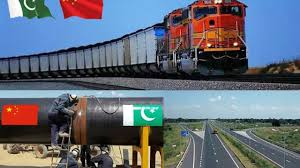China supports Pakistan to achieve sustainability in transportation industry

China Economic Net
Beijing: China has been strengthening mutually beneficial cooperation with other countries in the field of transportation connectivity. China has actively propelled ML-1 project and completed the Lahore Orange Line project, according to a White Paper released by the State Council Information Office of China.
The white paper, titled “Sustainable Development of Transport in China,” released on the country’s transport development provides a full picture of its achievements in the field and share its strategy and activities in building a sustainable transport system, according to China Economic Net (CEN) on Wednesday.
The White Paper summarizes the development and achievements of China’s transport sector in 2020 and highlights the development of transport projects under CPEC.
According to the White Paper, China has been strengthening mutually beneficial cooperation with other countries in the field of transportation connectivity. China has actively propelled ML-1 project and completed the Lahore Orange Line project.
The ML-1 railway project under CPEC has been described as a revolutionary project that would transform the entire railway structure in Pakistan, meanwhile helped control railway accidents and createed 150,000 jobs.
Subway is an important means of transportation in China and total number of passengers exceeded 28 billion in 2019. This October, the Orange Line opened, welcoming more than 40,000 passengers on its first day, marking the beginning of the “Metro Era” in Pakistan. It means that the Pakistani people can also enjoy China’s advanced mode of transport.
The White Paper also mentioned the Peshawar-Karachi Expressway and the Second phase of the Karakoram Highway. On the port side, China participated in the construction and operation of Gwadar Port.
With Pakistan’s active participation and joint efforts, the international connectivity architecture has basically taken shape. An all-dimensional and multilevel infrastructure network, with a focus on railways, highways, shipping and aviation, is taking shape at a faster pace, and the cost of goods transactions and flows between regions is gradually being reduced, thus promoting the orderly flow and optimal allocation of resources across regions, the White Paper stated.
